Immigration raids 10 years ago didn’t change this meatpacking town’s job market
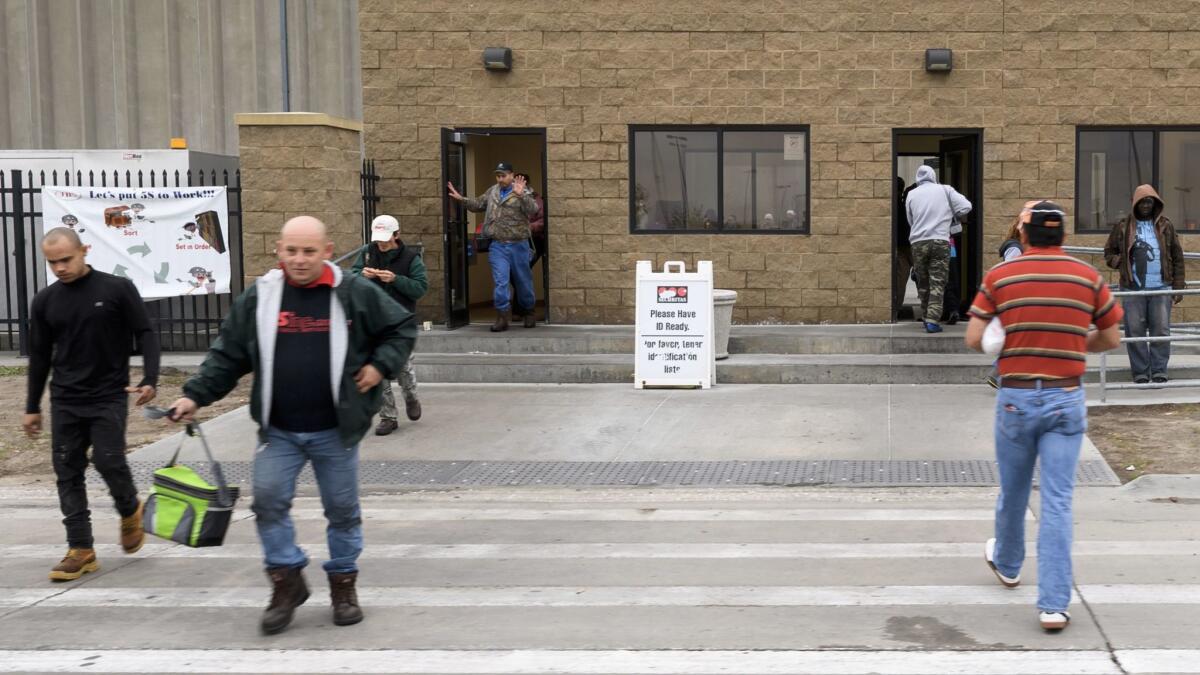
- Share via
Reporting from Grand Island, Neb. — Upon his wife’s death, George Katrouzos dropped his three children at a Chicago orphanage with a promise: He would make a life in Grand Island, Neb. — a town that was going someplace, a town that had streetlights — and he would come back for them.
Katrouzos, who came to America from Greece, did both. He opened a lunchroom in the teeth of the Great Depression and after six months retrieved the kids. It was 1933, and the family of four sometimes traded food with other vendors to get by.
Katrouzos’ grandson, also named George, now runs the place, scolding regulars over coffee, shyly explaining to customers that, no, in nearly a century, his family never has sprung for an ice machine.
The story of the Coney Island Lunch Room in Grand Island is a familiar one among 20th century immigrants here on the Great Plains: A newcomer makes a gamble in a cold, new place and it pays off, for his children and their children, while the family itself becomes a bedrock of the community.
“Definitely the all-American story,” says the younger Katrouzos. “The little lunchroom kind of keeps in its own little bubble while the world outside goes by.”
In the 21st century, Grand Island and other Midwestern towns are again at the forefront of Great Plains immigration and the national debate over immigrant labor in the the American workforce.
Today, 1 in 9 Nebraskans is Latino or Asian, many lured by jobs at JBS USA, operator of the local meatpacking plant that is Grand Island’s biggest employer.
Few of these immigrants have forged the New World success story that Katrouzos and his family managed to build. Some of them wound up being deported in immigration raids at the meat plant, ostensibly to free up jobs for native Nebraskans. But few locals took those jobs.
The story of Grand Island, instead, is a tale of successive waves of migration, and generations of hardship.
Nebraska, flat and featureless, has always been available to those willing to endure it.
::
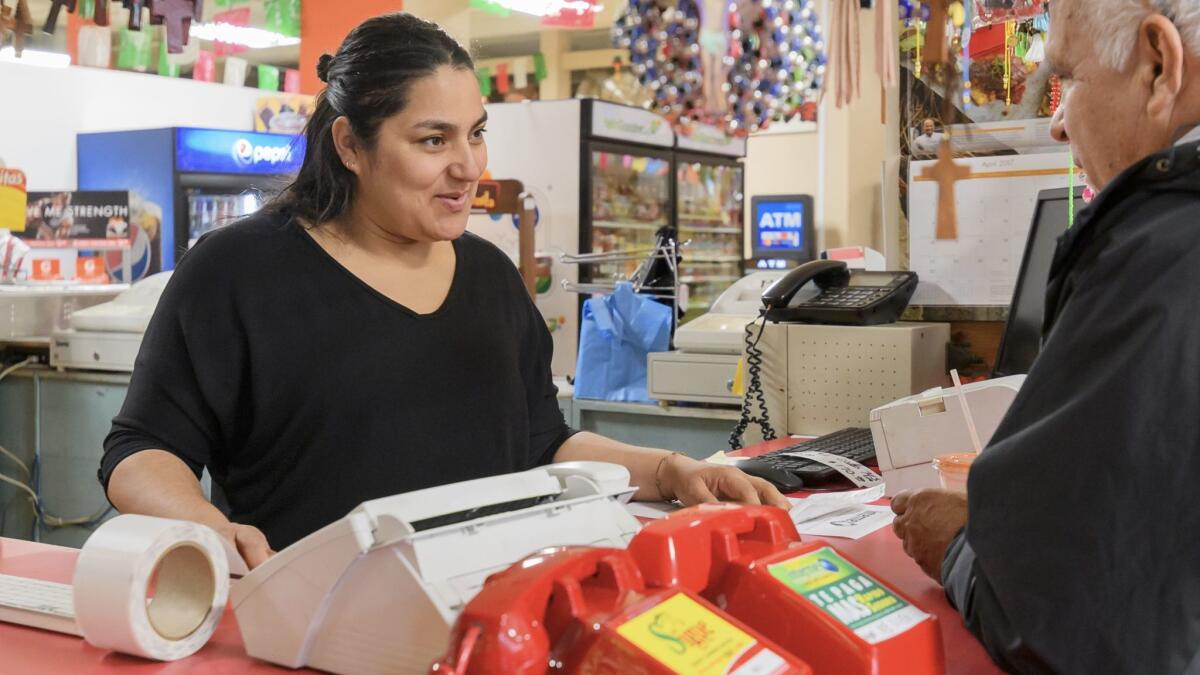
Swift & Co. opened the meatpacking plant here in the 1960s and it quickly attracted hundreds of Mexicans and Guatemalans, who dominated its workforce.
The first big attempt to crack down on illegal immigration came in 2006, when immigration agents stormed the plant and five others across the country, detaining 1,300 people.
The complaint then from anti-immigrant politicians was that undocumented workers were taking local jobs, and the promise from the federal government was that the immigration raids would open up jobs for Americans. Local municipalities would thrive.
But in the intervening decade, that assurance has proved hollow.
The native-born population in Grand Island did not take the jobs opened by the deportation of Latino workers, nor are those Americans particularly better off.
Instead, the deported Mexicans and Guatemalans were replaced by Somalis, some whites and yet more Latino workers. Cuban and Mexican migrants with legal working papers were recruited with bonuses and relocation costs.
Even so, poverty among foreign-born households has nearly doubled since the 2006 raid, and the rest of the population has hardly fared much better.
In 2008, 10% of all Grand Island families were poor enough to be receiving Supplemental Nutrition Assistance Program, or SNAP, benefits. By 2015, that number was 14%. Among Latinos, the number had risen to 26%.
“Work site raids are more about sending a message than about any real economic impact. If the administration was committed to reducing employment of the undocumented, they would crack down on employers rather than deporting workers,” said Tara Watson, associate professor of economics at Williams College and a former deputy assistant secretary in the U.S. Treasury Department under President Obama.
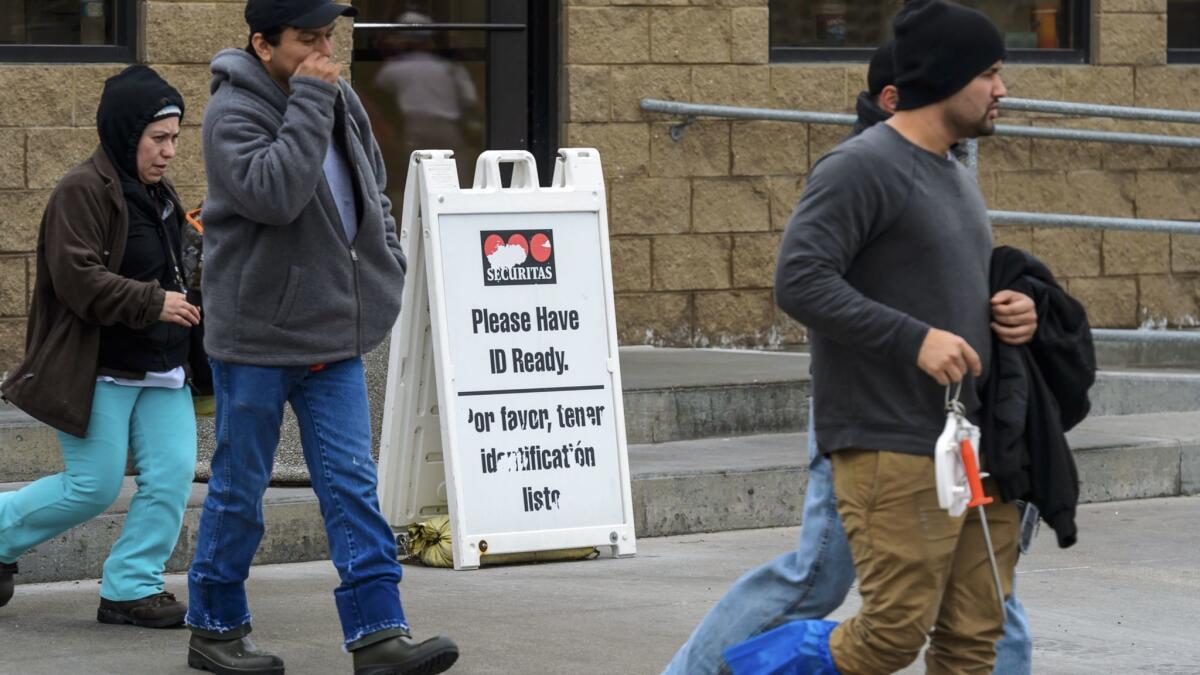
Outside the packing plant on a recent afternoon, the line of shift workers driving to and from work stretches to the low horizon. Behind the wheels are men in ball caps and women in hijabs, one of whom was honked at by a truck full of men with the beat of a norteño corrido blaring from its speakers.
Their faces wear the sullen determination of people leaving eight hours of manual labor amid the stench of blood and viscera, or steeling themselves to start work.
The smell of manure from nearby fields wafts past a fancy cocktail bar named after the titular character in T.S. Eliot’s “The Love Song of J. Alfred Prufrock.” There is a brewery in town and a second one coming.
Grand Island’s economy is almost entirely dependent on the cattle and grain trades. Along with meatpacking plants, the cattle industry also employs ranch hands and truck drivers — steady blue-collar employment that is entirely dependent on the price of beef.
The town is subject to the whims of the commodities market even more than the supply and demand of the labor market. During the recession that began in 2008, when cities like Las Vegas and Phoenix suffered, agricultural towns prospered as commodities prices soared.
Now, commodities prices have leveled off, and Grand Island is feeling the sting. Unemployment has begun to creep up.
Katzous puts it simply: “Ag is what we live off out here, bouncing with the market, and it’s kept us going this long.”
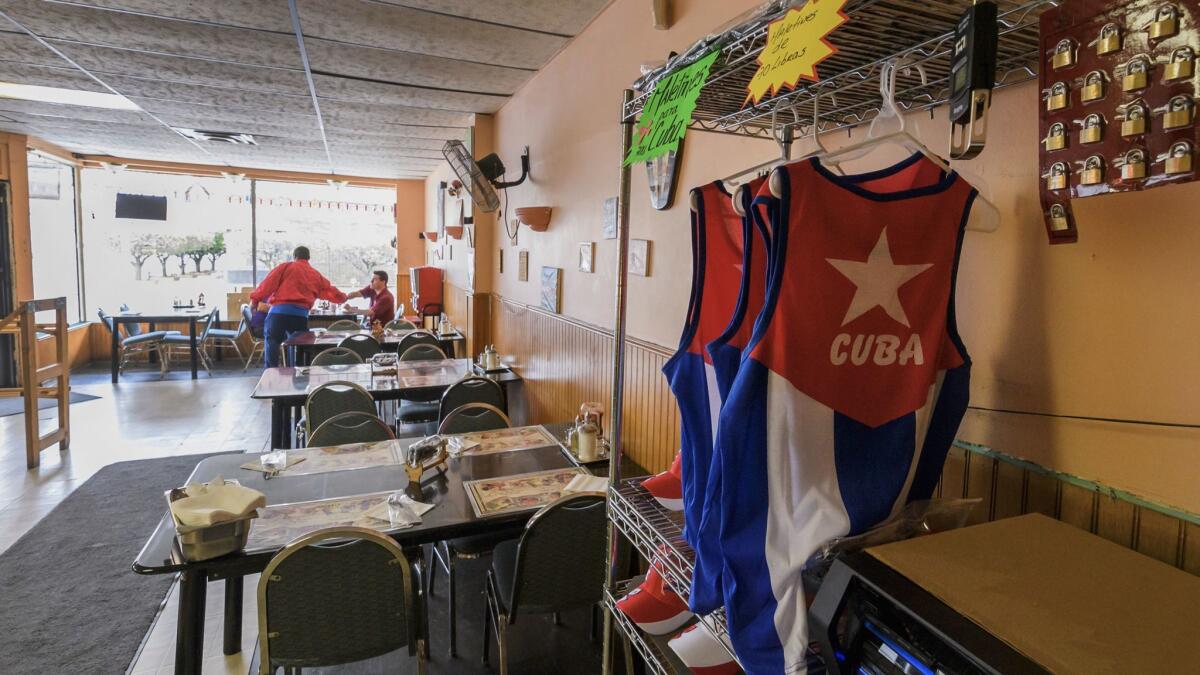
Why didn’t life get better in Grand Island? Conservatives argue that it has.
They say that without migrants working illegally, natives and legal migrants benefit in improved wages and better job security.
“Examples abound of those jobs being filled by Americans after they have been raided or audited by the feds,” said Eric Ruark, research director for NumbersUSA, a group that advocates for lower immigration levels. “Sometimes employers have to raise wages, and sometimes they can fill the jobs at the existing rate.
“In either case, the results are fantastic for the Americans who gain employment.”
And while a large number of the jobs at the Grand Island meatpacking plant went not to locals but to a new wave of immigrants, there were improvements in wages.
The Center for Immigration Studies, which also advocates for immigration cuts, found that in the immediate aftermath of the roundup at Swift & Co. plants in 2006, four of the six facilities raided saw an 8% rise, on average, in wages and bonuses.
Mainstream academics and liberal immigration advocates reject those conservative interpretations as too simplistic.
“There is no conclusive evidence that immigration enforcement improves employment outcomes for the native-born,” Watson said.
Grand Island Mayor Jeremy Jensen denied that the city’s Latino community was suffering economically from the legacy of the raid, and also downplayed fears of possible new immigration raids under the Trump administration’s stepped-up enforcement policies.
“I would find no reason anyone should be scared to go to work, church or shopping. No one has ever expressed this fear to me, nor do I believe there is any reason for any law-abiding individual to feel threatened,” Jensen said in an email.
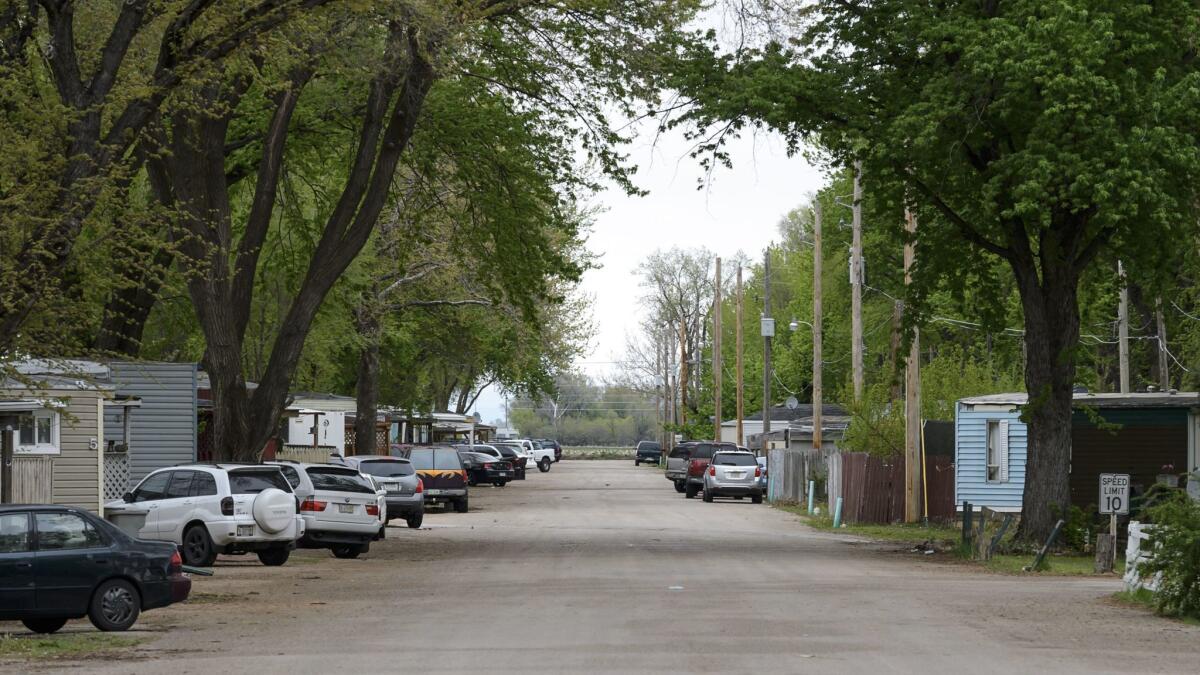
Many of the new immigrants here have taken up residence at the Capital Trailer Park, a place without much roots. But some have begun building lives here, buying homes and weeping through their children’s graduations at the local high school. More than 75 businesses in town are owned by Latinos. It was Grand Island that sent Nebraska’s first Latino lawmaker to the state Legislature.
Nearly a century after George Katrouzos walked the lamp-lit streets of Grand Island and put down $100 to purchase a piece of it, what is required to survive here as an immigrant, in the end, is evident: simply, time. It took decades.
Follow Nigel Duara on Twitter: @nigelduara
ALSO
No need for a full border wall, Trump says
Trump administration delays program that lets immigrant entrepreneurs into the U.S.
Protesters gather in East L.A. to demand that Sheriff McDonnell support ‘sanctuary state’ bill
More to Read
Sign up for Essential California
The most important California stories and recommendations in your inbox every morning.
You may occasionally receive promotional content from the Los Angeles Times.














